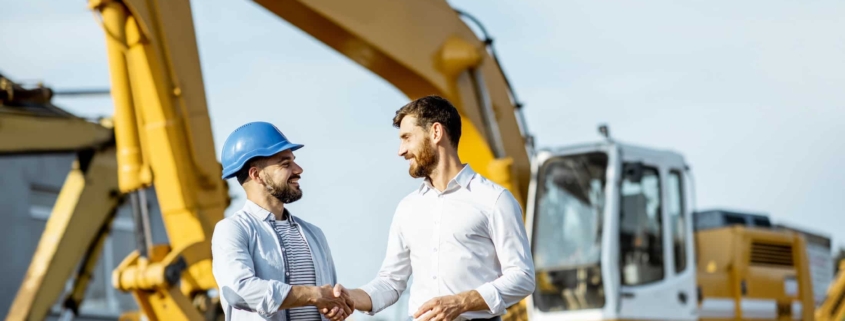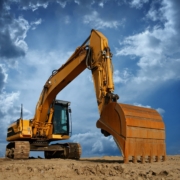To Rent, To Lease or To Buy: Obtaining Expensive Equipment for Your Business
Any small business owner stuck between buying or renting essential equipment knows that the query is not a simple binary. Making a choice you are firmly satisfied with requires both a full understanding of your current financial standings as well as a clear picture of where you anticipate your business to stand in the future. And making the wrong decision can have lasting consequences of their own. Let’s discuss practical use cases to determine where buying, renting, or leasing may be right for your business.
When to Buy…
Potential Benefits to Buying Equipment
Buying property or equipment – whether through cash on-hand or equipment financing – has the obvious incentive of true ownership. Having absolute ownership over your property or expensive equipment has the chance to be a cost-saver in the case of equipment you use frequently or in property that appreciates in value. Consider this example: a farmer with 75 acres of tillable land outright purchases a combine harvester. Since the combine harvester is necessary to reap crops annually, the purchase may very well be a financial gain after several years. Consider as well the IRS Section 179 allowance; businesses were allowed to deduct up to $1,080,000 as a first year write off in equivalence to equipment or software purchased during that tax year in 2022.
Potential Detriments When Buying Equipment
This example, however, plays equally well into the downsides of purchasing: combine harvesters are exceedingly expensive outright (like many industry-specific machines) and can be equally expensive to repair if you don’t already employ sufficient technicians. Imagine, as well, the potential that a certain crop doesn’t properly germinate or labor shortages lead your team to miss proper times for reaping; in the case of leasing or renting, the tangible financial hit of that reduced harvest would likely not be as dire.
Buying is a Bet for the Best
Buying expensive equipment outright requires sage-like industry knowledge as well as an exit strategy in order to be fully insulated, or as much so as is possible. Business owners on their first venture or entering a new industry may find that buying equipment more than double-digit percentages of their total capital is markedly unwise. Small businesses have the most to gain from owning their equipment… but only if that equipment meaningfully returns on its investment. Purchased equipment that fails to see regular use or drastically impacts your capital or overhead has the risk of becoming a monument to rash decisions rather than a useful business tool.
When to Rent…
Potential Benefits to Renting Equipment
Not every industry allows for easy renting of equipment. Renting generally is most beneficial to industries that are wholly seasonal or have tracked busy seasons. If you run a year-round business with consistent revenue, customers, and products, it is unlikely the monthly price and lack of ownership could in any way benefit your business.
Since renting requires the least capital upfront, it is often the most attractive option for freshly minted businesses that are still finding their stride. A worst-case scenario for a small business is preemptively paying for assets that don’t turn around to help your business. Let us consider the example of a farmer and a combine harvester again: in 2022, new or even lightly used combine harvesters can cost stupefying amounts of money upfront, often close to $750,000. In our example of a 75-acre farm, that cost is likely too much capital for a farm of this size which is not the subsidiary of a larger corporate structure. Renting a combine may simply be the only way for smaller farms (or small seasonal businesses) to turn a profit annually. The hope for farms and small businesses with similar structures, of course, is to save enough capital or meaningfully study trends enough to which purchasing expensive equipment amounts to a no-brainer good decision.
Potential Detriments When Renting Equipment
Rented equipment isn’t yours. Flatly, this almost explains any major downside that comes with renting. In the case of damage to any machinery you rent, there is a very good chance you will also have to pay for repairs on top of your existing rate for the rental. And let’s go back to our farmer one more time: Our farmer simply does not have the capital to outright buy a combine harvester (as is the case for many harvest-based farmers) and annually rents a combine from a regional host. Here’s the trouble: seasonal harvests happen all at once for farmers in the same region. This means that every farmer in that region that doesn’t own their own combine is going to rush to rent. In that rush, there is a more than possible chance that certain farmers may not secure a combine and then suffer the loss of an entire harvest. Leaving essential equipment in the hands of a third party introduces unpredictable variables for business owners. And for small business owners with smaller safety nets, suddenly being left without a suitable rental can spell disaster.
Rent From Trusted Sources and Only When You Have To
Unpredictability can quickly shutter seasonal businesses for good; of course, seasonal businesses are also those who are most likely to rent expensive machinery. Renting isn’t bad by nature; many industries like construction and, of course, agriculture wholly depend on rentals in order to remain profitable. This simply means that every choice to rent or buy ought to be informed by genuine industry trend data. Whether this means understanding the potential loss from not renting a certain piece of equipment or funding a safety net in the event of a missed rental or other unexpected hits.
Third Choice… Leasing
For those industries where rentals are rare or simply implausible, leasing can likely be a worthy third choice to consider when dealing with any major, expensive machinery. Leasing is a great option for businesses that use equipment that is constantly changing. With a lease, you’re only committed to equipment for the length of the lease, so you’re not stuck with equipment that can quickly become obsolete. While vehicles, specifically, are most peoples’ first thought for lease potential (our farmer and combine are back!), it’s worth knowing that several major industries lease a wide variety of machines. Offices can lease expensive copy machines, charter schools can lease student laptops, and several more practical examples are out there and likely relevant to just about every industry.
Leave No Stone Unturned and No Path Untested
No small business owner can be fully certain that buying, renting, or leasing expensive equipment is the right choice. What small business owners can do, however, is consider, as we have here, the potential benefits and detriments to each choice parallel to their own business. Those businesses who make informed decisions with safety nets and back up plans have the least to lose when making a major financial decision.





